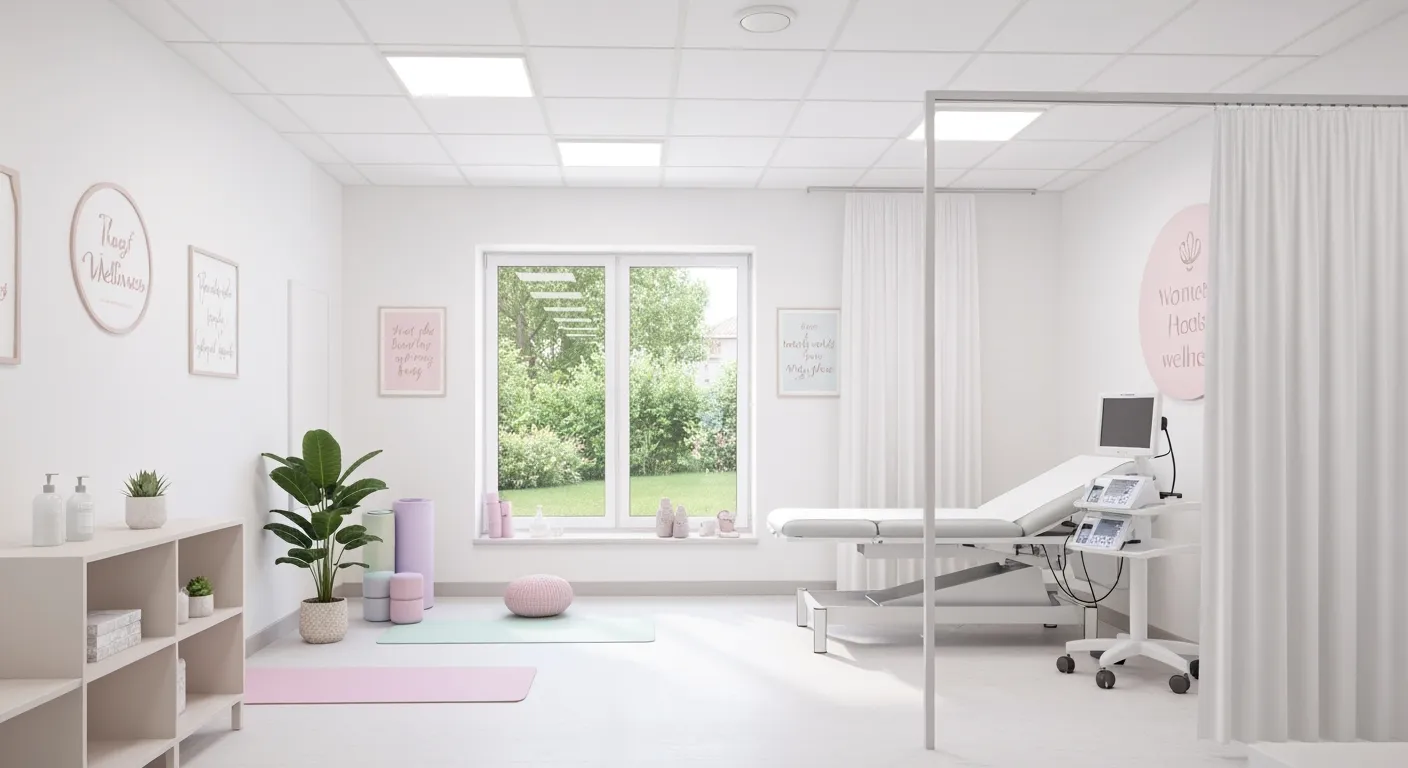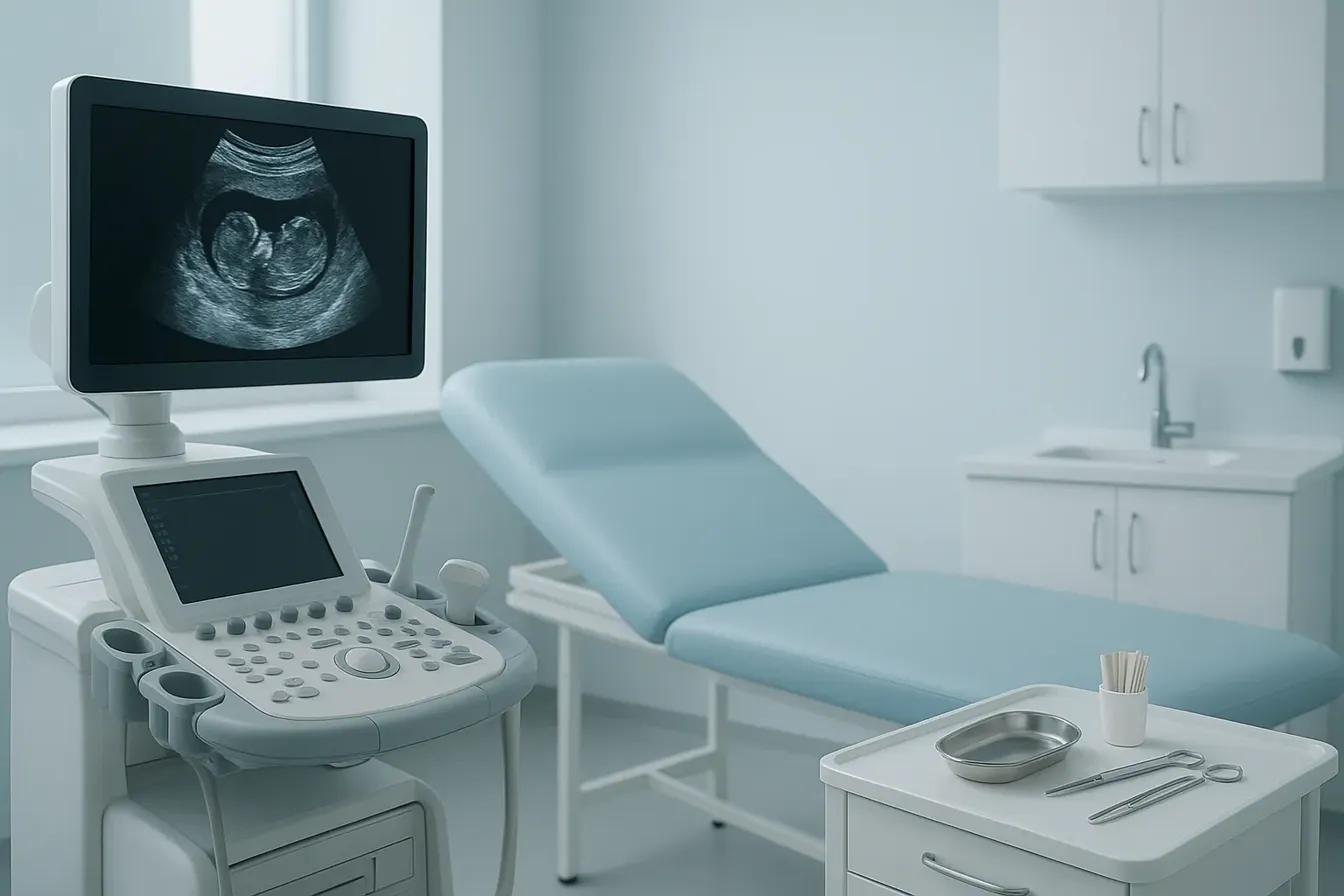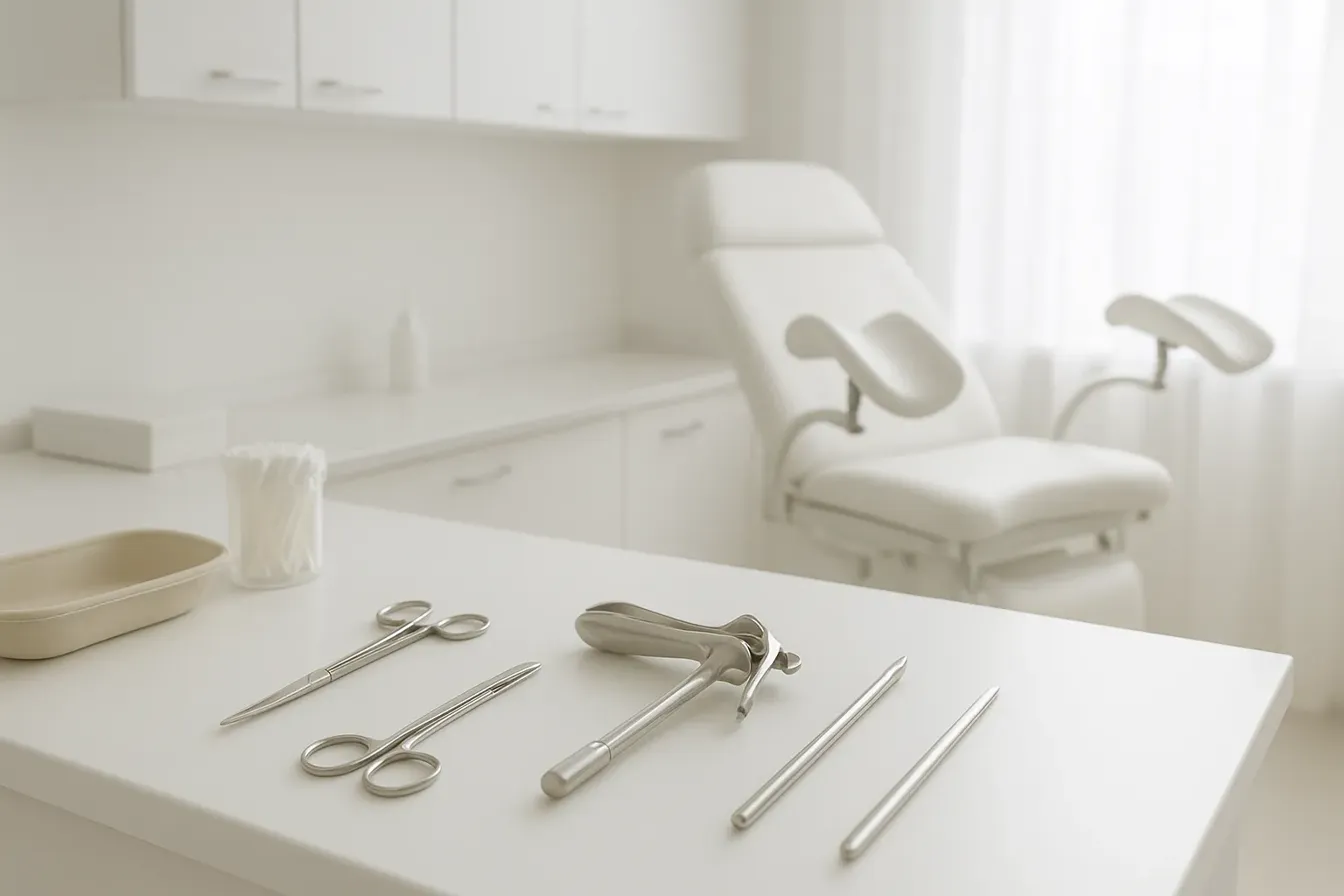Empowering Choices: The Essentials of Birth Control Counseling

Understanding Women's Health from Adolescence to Senior Years
Women's health encompasses distinct stages marked by unique physiological, psychological, and social changes. Recognizing and addressing care considerations during these milestones—from the formative teenage years through the challenges of aging—is crucial to promoting lifelong wellness. This article explores key health priorities, preventive care, and tailored interventions across women's life stages to empower well-being from teens to seniors.
Adolescence: Building Foundations for Lifelong Health

What are the key physical and mental health considerations for adolescent girls?
Adolescence marks significant physical changes, including breast development, the start of menstruation, and hormonal shifts. These changes often bring mood swings and skin issues like acne. Mental health challenges such as anxiety and depression may also arise during this time, making emotional support crucial. Regular annual physical exams help monitor these developments. For more information, see teen girl's healthy life, Adolescent Medicine Clinic, and Adolescence and Women's Health.
What role does sexual health education play for teenagers?
Comprehensive sexual health education equips teens with knowledge to practice safe behaviors, preventing sexually transmitted infections (STIs) and unplanned pregnancies. Confidential reproductive services provide access to contraception and STI testing, empowering teens to take control of their sexual health responsibly. Relevant resources include sexual health communication, Adolescence and Women's Health, and Healthy Teens and Gynecological Care.
How important are nutrition and exercise during teenage years?
Proper nutrition, emphasizing calcium, iron, and vitamins, is vital for physical growth and strong bones. Teens should aim for at least 60 minutes of moderate-to-vigorous exercise daily, which supports healthy weight and fosters habits that benefit lifelong health. Limiting sugary drinks and eating balanced meals contribute to overall well-being. See additional information at Energy needs for teens, Growing healthy teenage girls, and Healthy Teens and Gynecological Care.
Young Adulthood: Preventive Care and Reproductive Health

When should young women begin gynecologic exams and screenings?
Young women are advised to start annual gynecologic visits around age 20. Routine cervical cancer screening begins at age 21, with Pap tests recommended every three years. HPV vaccination is strongly encouraged through age 26 and may be considered up to age 45 after consulting a healthcare provider.
What preventive measures are important for young adult women's reproductive health?
Important preventive care involves screening for sexually transmitted infections (STIs) such as chlamydia, gonorrhea, and HIV, especially for sexually active women. Breast exams should commence at age 25 to detect any early abnormalities. Contraceptive counseling is vital to manage birth control effectively and safely. Women planning to conceive should take folic acid supplements to lower the risk of birth defects.
How do lifestyle habits impact health in young adulthood?
Building healthy lifestyle habits during young adulthood lays the groundwork for long-term wellness. Consuming a balanced diet rich in nutrients, engaging in regular physical activity, and avoiding tobacco and excessive alcohol use are fundamental. Additionally, addressing mental health through screenings and support services fosters emotional well-being, helping young women navigate the challenges of this life stage.
Midlife Transitions: Managing Perimenopause and Emerging Risks
What health challenges arise during midlife for women?
Midlife, typically spanning ages 35 to 60, is a period of significant hormonal changes marked by perimenopause. Women often experience symptoms such as irregular menstrual cycles, hot flashes, night sweats, mood swings, and sleep disturbances. These changes are accompanied by rising risks of chronic conditions including cardiovascular disease, diabetes, metabolic syndrome, and osteoporosis (Women's midlife health overview, Health issues for women in their 50s and 60s, Women's health milestones, common health conditions in midlife women).
What preventive services should midlife women prioritize?
Regular screening is critical during midlife. Women should begin annual mammograms at age 40 to detect breast cancer early, while colorectal cancer screening is advised from age 45. Bone density assessments help gauge the risk of osteoporosis, especially as estrogen levels decline. Monitoring vital health markers like blood pressure, cholesterol, and blood sugar is essential. Alongside medical screenings, maintaining a balanced diet, engaging in regular physical activity, and managing stress contribute significantly to health maintenance (Women's Preventive Services Guidelines, Women's Health Journey, Cancer and cardiovascular screenings, Holistic care in women's health).
How do social determinants influence health outcomes in midlife?
Social factors substantially impact health outcomes during midlife. Women from socioeconomically disadvantaged backgrounds and Black women experience higher rates of hypertension, acid reflux, and sleep disorders. These disparities highlight the necessity for targeted healthcare interventions and equitable access to preventive services (Race and health disparities in midlife women, Health challenges for socioeconomically deprived women, social determinants of health in midlife women.
Mental health and lifestyle adaptations
Approximately 20 to 30% of midlife women face recurrent depression episodes related to hormonal fluctuations and psychosocial stresses. Supportive lifestyle adaptations such as regular exercise, stress reduction techniques, and social support systems are important strategies to bolster mental well-being during this transition (Mental health in midlife women, Mental health and hormonal changes, Exercise and mental health, holistic care in women's health).
Midlife is a pivotal phase requiring vigilant health management through a combination of preventive care, lifestyle adjustments, and awareness of social and racial disparities that may impact health outcomes.
Menopause and Beyond: Supporting Health and Independence in Later Years
What are the primary health concerns for women during and after menopause?
Menopause typically occurs around ages 50 to 52 and signals the end of menstrual cycles. Women often experience symptoms such as hot flashes, vaginal dryness, and mood swings. A major health concern is the loss of bone density, increasing the risk of osteoporosis and fractures. Additionally, the risk of heart disease rises after menopause, necessitating careful lifestyle and medical management to maintain cardiovascular health. For more on menopause and hormonal changes and postmenopause health risks, see related resources.
What screenings and preventive measures are recommended for older women?
Regular health screenings are vital for women in later years. Mammograms for breast cancer detection are generally advised until age 75. Bone mineral density scans usually start at age 65 to monitor osteoporosis risk. Colonoscopies and other cancer screenings continue based on individual health status. Vaccinations—including annual flu shots, shingles vaccine, and pneumococcal vaccines—play a crucial role in preventing serious infections in older women. For detailed recommendations, see Women's Preventive Services, Health screenings for women 65 and older, and Preventive care benefits for women.
How can older women maintain independence and well-being?
Maintaining physical activity that emphasizes strength training and balance exercises can greatly reduce the risk of falls, a leading cause of injury in older women. Staying socially engaged and mentally active supports cognitive health and emotional well-being. Home safety modifications, such as removing tripping hazards and improving lighting, alongside access to caregiver support services, help women live independently and maintain quality of life throughout their later years. Additional resources on healthy aging tips for women, support services for older adults living at home, and Senior Health Programs provide further guidance.
Preventive Care Across the Lifespan: Key Screening and Immunization Milestones
What are the critical preventive screenings recommended for women at different ages?
Women are advised to start cervical cancer screening starting at age 21 with Pap tests every three years. Clinical breast exams usually begin at age 25 with annual mammograms from age 40. Colon cancer screening is recommended starting at age 45 through various methods such as colonoscopy. For bone health, bone mineral density testing is suggested starting at age 65 to detect osteoporosis. Mental health screenings, including assessments for anxiety and depression, are routinely recommended throughout adulthood, recognizing the higher prevalence among women (Women's Preventive Services Guidelines).
How do immunization recommendations evolve with age?
The HPV vaccination is strongly recommended starting around ages 11–12 and continuing up to age 26, with some adults between 27 to 45 eligible based on individual risk. Tetanus vaccines are advised every 10 years. After age 50, women should receive the shingles vaccine to protect against herpes zoster. Pneumococcal vaccines are recommended at age 65 and older to prevent pneumonia and related complications.
What role does health insurance coverage play in preventive care access?
Health insurance, particularly plans compliant with the Affordable Care Act (ACA) women's preventive services, generally covers preventive women's health services without copayments or coinsurance when services are delivered by in-network providers. Coverage includes essential screenings and counseling for reproductive health, cancer, and mental health. Medicaid and the Children's Health Insurance Program (CHIP) provide expanded access for low-income women, offering comprehensive preventive care including prenatal and reproductive services.
Managing chronic diseases and preventive care
Women face chronic conditions like hypertension, diabetes, and osteoporosis at various life stages. Preventive visits include monitoring blood pressure, blood sugar, cholesterol, and counseling on lifestyle. Early detection through regular checkups and staying up-to-date with vaccines reduces risks and supports healthier aging (Common chronic conditions in older adults).
Maintaining scheduled screenings, vaccinations, mental health support, and leveraging insurance coverage ensures women receive comprehensive preventive care tailored to each stage of life (Women's Preventive Services Initiative) and supports holistic care in women's health.
Addressing Social and Mental Health Factors: Holistic Approaches for Women’s Well-being
How do mental health concerns affect women across life stages?
Women face elevated risks of anxiety, depression, and stress at every stage of life. During adolescence, girls often grapple with social pressures and identity challenges that impact mental wellness (Mental health in adolescent women, Mental health for teens). Midlife women navigating perimenopause and menopause may experience mood swings and depressive symptoms related to hormonal shifts (Mental health issues in adulthood, Perimenopause symptoms and management). Older women frequently confront isolation, cognitive decline, and depression, highlighting the need for age-appropriate mental health care tailored to each stage (Cognitive decline in aging women, Social isolation in older women, Mental health support).
What social barriers interfere with women's healthcare?
Stigma and misconceptions about women's health persist, creating significant obstacles to timely and effective care. Gender disparities in medical research and treatment, along with societal role expectations, further undermine healthcare access (Gender disparities in healthcare). Ageism also adversely affects older women by contributing to inadequate diagnosis and treatment (Ageism in women's healthcare. These barriers emphasize the importance of education, advocacy, and culturally sensitive care to overcome health inequities (Health impacts of social determinants on women, holistic care in women's health.
How can holistic care improve women's health outcomes?
Holistic approaches integrate mental and social health into routine care, promoting a balanced outlook on well-being (Holistic well-being, holistic care in women's health. Mental health screenings at every visit facilitate early identification and intervention (Mental health screenings for anxiety and depression). Open communication between women and healthcare providers fosters trust and personalized care plans (Communication with healthcare providers). Social support from family and community enhances emotional resilience, while stress management strategies — including regular exercise, nutritious diet, quality sleep, and mindfulness practices (Exercise, strength training, and stress reduction techniques, Balanced diet and exercise, holistic care in women's health — enrich physical and mental health. Together, these measures prevent disease, improve quality of life, and empower women to maintain wellness throughout their lives (Prioritizing wellness).
Empowering Women Through Every Stage of Life
Women’s health is a dynamic journey shaped by biological changes, lifestyle factors, and societal influences that evolve from adolescence to senior years. Emphasizing preventive care, early detection, and holistic management tailored to each life stage enhances health outcomes and quality of life. Educational efforts, expanded access to screenings and vaccines, and addressing mental and social health barriers are vital. With ongoing support and informed choices, women can navigate milestones confidently, preserving wellness through every decade.





.png)